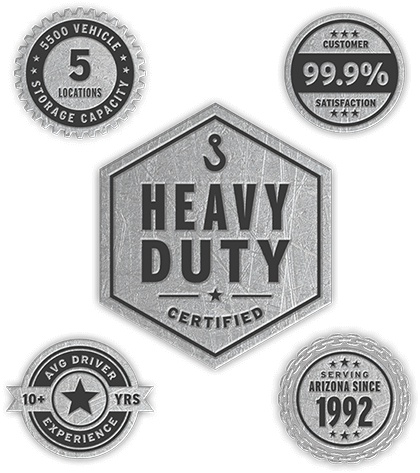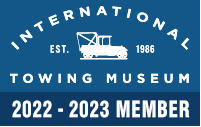Vehicle Release
Having your vehicle towed can be a frustrating and uncertain event. At All City Towing we hope to make retrieving your vehicle as transparent and painless as possible. To learn about the vehicle release process, please review the vehicle release information for vehicles towed from a Private Property or vehicles towed by police agency below.
Police Ordered Tows
If your vehicle has been subject to a police order tow please visit the website of the appropriate police department linked below.
Private Property Impounds
If your vehicle has been towed from private property, there are state statutes as well as local/county ordinances or codes which control the towing and release of your vehicle. In general, police agencies are not involved in this type of tow, other than the requirement for the towing company to make notification that a vehicle has been towed from private property. This is required to eliminate the unnecessary preparation of a stolen vehicle report. If the owner calls the police and reports the vehicle as being stolen, the police agency can confirm whether it has been towed and not stolen.
What do I do when I realize my vehicle is no longer parked where I left it?
Do not assume your vehicle has been stolen as your vehicle may have been towed. Check the location where the vehicle was parked, which list contact information for the towing company. Call the number listed on the sign for the towing company and inquire on the vehicle in question.
Who has the ability to authorize the tow of my vehicle from private property?
Generally speaking, only the owner of the private property where you are parked or a property manager and/or their agent(s) can have your vehicle towed. This includes a tenant, as an agent for the owner. The towing company has no authorization to tow the vehicle without written permission (through an authorization or by contract) from one of these individuals.
How do I retrieve my vehicle after it has been towed from private property?
- Call the towing company to inquire as to fees, location, hours and documentation requirements.
- Go to the towing company’s storage location to make payment and/or payment arrangements and retrieve your vehicle.
What are the maximum fees allowed for private property impounds?
Local ordinances and city codes control the maximum fees. Please reference the appropriate city code or local ordinance for a schedule of the maximum fees.
What are the accepted forms of payment?
Cash, Visa, MasterCard and/or debit card are accepted. Money orders, cash advance checks, 3rd party checks, and similar forms of payment are not accepted. Release of the vehicle is predicated on payment/payment arrangements and providing the appropriate identification and proof of ownership.
What documentation will I be required to provide when I retrieve the vehicle from the storage location?
Certain cities have different requirements; however, in general, you will need the following documentation:
- Title, current registration or rental agreement to prove ownership/agency.
If a person other than the registered owner is retrieving the vehicle, that person will need the following:
- An official government photo ID and/or a valid driver’s license.
- A signed and notarized statement from the registered owner granting permission for the named individual to retrieve the vehicle.
- A photocopy of the registered owner’s official government photo ID.
- A photocopy of the title or current registration.
- Payment by one of the accepted methods of payment.
The vehicle will be delivered to the public right of way. It is important that you bring all necessary equipment to haul your vehicle away if it is not drivable. You will not be permitted to bring tools with you and work on the vehicle at the tow yard for liability reasons.
You will be asked to sign a receipt for the vehicle being claimed. The receipt should contain the following:
- The name and address of the claimant/registered owner.
- The name, address and letterhead of the private towing carrier.
- The date and time at which the vehicle was claimed.
- A description, including the license number, of the claimed vehicle.
- A statement of the unpaid balance, if any.


